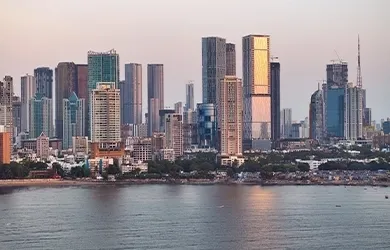Budget 2023-24- Key Takeaways For Real Sector
By lodha
March 15, 2023Finance Minister Nirmala Sitharaman presented the Union Budget for FY2023-2024, which aims to drive pro-growth initiatives, inclusive development and job creation while maintaining macroeconomic stability and fiscal prudence. The budget places a strong emphasis on increasing economic consumption, driving growth in various sectors and achieving a solid GDP growth rate of 6-6.8%.
Since the pandemic, India's real estate industry, which is the second-largest contributor to job creation, has shown remarkable resilience and was a key focus in the budget. The real estate market is expected to reach $1 trillion by 2030 and contribute 13% to GDP by 2025, owing to rapid urbanisation and growth. Let's look at the budget's impact on the real estate industry and the benefits for first-time home buyers.
The Union Budget contains several encouraging announcements for the real estate industry, including a 66% increase in allocation for the Pradhan Mantri Awas Yojana (PMAY) to more than Rs 79,000 crore. Given that the beneficiaries of the PMAY scheme are mostly low-income households in the unorganised sector, this move could catalyse growth in the affordable housing segment. Top real estate developers and Grade A developers, such as Lodha, have launched affordable housing projects that provide residents with high-quality construction, a variety of amenities, and services.
PMAY, which was launched in 2015, is the government's flagship mission to provide housing for all, particularly first-time home buyers. The finance minister set aside Rs 48,000 crore last year to complete 80 lakh houses for eligible urban and rural beneficiaries. In addition, the finance minister announced measures to make the new personal income tax regime more appealing to taxpayers. Individuals with an annual income of up to Rs 7 lakh will be exempt from income tax under the new regime beginning in FY24. This limit was raised from Rs 5 lakh to Rs 10 lakh in the current fiscal. Individuals with an annual income of more than Rs 7 lakh will have a lower tax outgo and more disposable income under the new regime, boosting purchasing power and stimulating economic growth. This will increase the demand for affordable homes from first-time home buyers.
The budget proposals emphasise the modernization and development of urban infrastructure and the real estate industry, as urbanisation is expected to be the most important growth driver in the Indian economy. The government will encourage states and cities to implement urban planning reforms and actions that will transform our cities into "sustainable cities of the future." As a result, transit-oriented development with efficient use of land resources increased availability and affordability of urban land, and opportunities for all will result. More emphasis on urban infrastructure will stimulate growth in Tier 2 and 3 cities, improving people's overall quality of life.
The budget has given infrastructure development yet another boost, with the government proposing a significant increase in capital expenditure for the fiscal year 2023-24. The new allocation of Rs 10 lakh crore, equivalent to 3.3% of GDP, represents a significant increase over the previous year's allocation of Rs 7.5 lakh crore.
Furthermore, the government has increased the allocation to state governments for 50-year interest-free loans for infrastructure development to Rs 1.3 lakh crore. These policies will have a significant impact on the infrastructure sector, boosting its growth and development. This will also have a positive impact on the overall economy, resulting in job creation and increased private consumption.
The government's announcement of incentives and tax breaks in the budget for 2023-2024 is expected to have a significant impact on the infrastructure and real estate industries. This is likely to increase investment and development activity, which will not only create jobs but also boost economic growth.
You may also like



 Enquire
Enquire
 Call
Call
 chat
chat
 Search
Search





